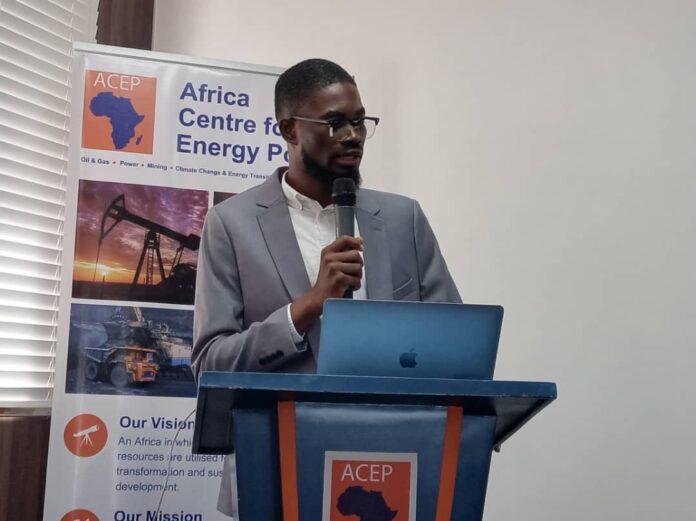Ghana loses a potential revenue stream of Ghc 100 million annually to the quarry sub- sector of the economy due to the absence of effective systems to monitor production figures, a survey conducted by the African Centre for Energy Policy (ACEP) has revealed.
The survey which was conducted in 2022 with focus on large scale quarry companies operating in the country with a minimum threshold investment of one million dollars indicates that Ghana gets only Ghc 6.88 million out of the potential Ghc 109.44 expected receipts.
Background
The Quarrying sector which comprise industrial minerals are of strategic importance for the country’s industrial development goals. Quarry aggregates such as granite, limestone, sand and gravels are bedrock materials used for road, rail, housing and other development infrastructure needs domestically.
Additionally, the sector is insulated against global commodity price shocks contrary to market conditions for traditional minerals such as gold, bauxite, manganese and diamond which are more susceptible to global market dynamics.
Industrial minerals, if optimised properly and value added, have the potential to generate more stable revenue to support government budget implementation.
Sample Size and Methodology
The survey quantitatively verified production volumes of quarry aggregates through physical observation of truckloads of aggregates directly from fifteen (15) sampled quarries selected from five regions including Central, Greater Accra, Bono, Ashanti and Eastern region over time.
The two regions were selected for the survey based on their high concentration of quarry companies.
The study also involved interviews with officials from the Ghana Revenue Authority to assess the challenges with revenue collection from the sector.
Policy Lead, Minerals and Mining Policy at the African Centre for Energy Policy, Eliasu Ali who disclosed this during an encounter with members of Ghana’s Parliamentary Press Corps in Accra said even though the quarry sector’s current contribution to revenue has been very minimal, it has significant revenue potential for the development of the country if much attention is given to it.
Challenges
Challenges facing the quarry sector in Ghana according to the ACEP study includes difficulties in tracking production and revenues generated by the quarry companies.
ACEP noted that, Ghana’s administrative framework for monitoring mining taxation and mineral production are generally skewed towards traditional minerals such as gold. This makes it difficult to track production by companies engaged in quarry activities.
The survey identifies several fiscal gaps in the quarry sector that needs to be addressed.
ACEP observes the gaps contribute to the understatement of production volumes which impact government revenues.
The Minerals Income Investment Fund (MIIF) corroborated the findings by ACEP on the loses. It recently reported that that the quarry sector loses Ghc 50 million annually whiles identifying the invasion by foreigners, underpricing, lack of capital and encroachment by settlers within the catchment of quarries as challenges facing the industry.
Way forward
To ensure that the country derives maximum benefits from the industry, ACEP proposed the deployment of remote monitoring technologies to track truckloads of quarry aggregates at the production sites.
ACEP also called for value addition to the aggregates as a matter of necessity if Ghana is to get the much needed revenue much from royalties.
Participants also proposed amendments to the country’s mining laws where necessary, enhanced engagement with the media and relevant parliamentary select committees and local government officials.
Others suggested the need for ACEP to throw its pendulum to happenings in the informal quarry sector.
By: Christian Kpesese



